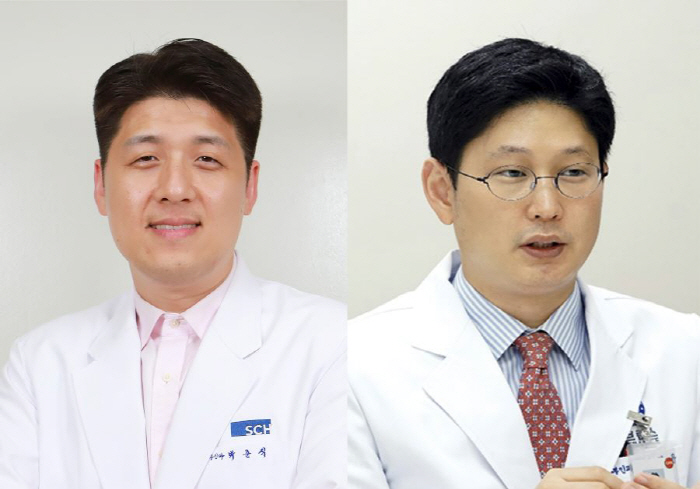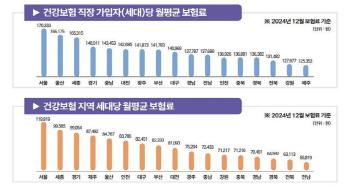Progressive Ovarian Cancer Improves Survival Rate Up To 1.5X With Double Immune Anti-cancer Drug Combination
Apr 16, 2025
Professor Park Joon-sik of obstetrics and gynecology at Soonchunhyang University Bucheon Hospital announced on the 14th that he proved the effect of improving the survival rate of advanced ovarian cancer patients with a multi-center clinical study (research manager: Professor Lee Jung-yoon of obstetrics and gynecology at Yonsei University Severance Hospital) through a joint study with a research team at Yonsei University.
Most ovarian cancers are diagnosed in stages that have advanced beyond stage 3. Patients with advanced ovarian cancer are considered to have a poor prognosis due to their high recurrence rate despite active chemotherapy and surgical treatment. In response, the research team of professors Park Joon-sik and Lee Jung-yoon planned the study by administering two immuno-cancer drugs, which have recently attracted attention to existing chemotherapy, to prevent recurrence of ovarian cancer and increase survival rates.
From June 2019 to July 2021, the research team combined the previous anticancer drugs 'duvalumab' and 'tremelimumab' in 45 patients with unresectable stage 3 or 4 ovarian cancer, peritoneal cancer, or tubular cancer. The subjects were divided into two groups according to the drug administration method, and the first group administered a low dose (75 mg) of tremelimumab three times, and the second group administered a high dose (300 mg) only once in the first cycle. Subsequently, all patients underwent moderate tumor reduction surgery, and adjuvant chemotherapy and duvalumab maintenance treatment were performed a total of 12 times.
As a result, the 12-month progression-free survival rate of the subjects was 65.9%, a marked improvement compared to the reported progression-free survival rate of approximately 50% in the conventional chemotherapy alone group. In particular, five patients (11.1%) showed complete pathological remission at the time of surgery with only three prior anticancer treatments. This figure is more than twice as high as the total remission rate reported in the previous chemotherapy alone treatment was less than 5%. All patients with complete remission survived without recurrence until the time point of 30 months, and the advantage of immune cancer treatment, 'persistent response', also appeared as it was. In addition, the 30-month survival rate is 87.7% and the disease-free survival rate is 36.4%, and the persistence of long-term survival benefits in some patients is noteworthy as a characteristic of immune anticancer drugs.
In addition, this study showed a better prognosis in the patient group with high immune checkpoint protein 'PD-L1' expression rate, specific mutation signature, and extracellular matrix gene signature. In particular, the disease-free survival rate of immune checkpoint protein 'PD-L1' positive patients was significantly higher, and it is expected to be used as a new predictive biomarker for patient-specific immunotherapy strategies in the future.
This study is a phase 2 researcher-led clinical trial conducted by the National Cancer Center, Samsung Medical Center, Seoul National University Hospital, Asan Medical Center, and Keimyung University Hospital, which are participating organizations of the Korean Gynecological Oncology Group (KGOG), led by Professor Lee Jung-yoon of Yonsei University School of Medicine. Researchers from Soonchunhyang University Bucheon Hospital and Cha Medical University participated in the analysis of the research results.
Professor Park Jun-sik "This study is significant in that it found positive possibilities for improving treatment response and long-term survival rates by applying immuno-oncology drugs, which were limited in effect in existing treatments, in combination with optimal timing. In particular, unlike previous studies that used combination therapy with immuno-oncology or PD-L1 inhibitor alone, this study showed differentiated treatment results by maximizing immune activation and synergy by combination administration of two immuno-oncology drugs with prior chemotherapy from the initial treatment stage.'
Then "This is a completely new strategy that stimulates the immune system when tumor antigens remain, inducing T cells to develop an effective anti-tumor response. If efficacy and stability are verified through large-scale randomized clinical trials in the future, it will be able to establish itself as a new standard treatment."
The results of this study were recently published in the American Cancer Research Association (AACR) international journal 「'Clinical Cancer Research (IF: 10.4)' under the title of 'Neoadjuvant Chemotherapy with Dual Immune Checkpoint Inhibitors for Advanced-Stage Ovarian Cancer: The Final Analysis of TRU-D Phase II Nonrandomized Clinical Trial'.
Most ovarian cancers are diagnosed in stages that have advanced beyond stage 3. Patients with advanced ovarian cancer are considered to have a poor prognosis due to their high recurrence rate despite active chemotherapy and surgical treatment. In response, the research team of professors Park Joon-sik and Lee Jung-yoon planned the study by administering two immuno-cancer drugs, which have recently attracted attention to existing chemotherapy, to prevent recurrence of ovarian cancer and increase survival rates.
From June 2019 to July 2021, the research team combined the previous anticancer drugs 'duvalumab' and 'tremelimumab' in 45 patients with unresectable stage 3 or 4 ovarian cancer, peritoneal cancer, or tubular cancer. The subjects were divided into two groups according to the drug administration method, and the first group administered a low dose (75 mg) of tremelimumab three times, and the second group administered a high dose (300 mg) only once in the first cycle. Subsequently, all patients underwent moderate tumor reduction surgery, and adjuvant chemotherapy and duvalumab maintenance treatment were performed a total of 12 times.
As a result, the 12-month progression-free survival rate of the subjects was 65.9%, a marked improvement compared to the reported progression-free survival rate of approximately 50% in the conventional chemotherapy alone group. In particular, five patients (11.1%) showed complete pathological remission at the time of surgery with only three prior anticancer treatments. This figure is more than twice as high as the total remission rate reported in the previous chemotherapy alone treatment was less than 5%. All patients with complete remission survived without recurrence until the time point of 30 months, and the advantage of immune cancer treatment, 'persistent response', also appeared as it was. In addition, the 30-month survival rate is 87.7% and the disease-free survival rate is 36.4%, and the persistence of long-term survival benefits in some patients is noteworthy as a characteristic of immune anticancer drugs.
In addition, this study showed a better prognosis in the patient group with high immune checkpoint protein 'PD-L1' expression rate, specific mutation signature, and extracellular matrix gene signature. In particular, the disease-free survival rate of immune checkpoint protein 'PD-L1' positive patients was significantly higher, and it is expected to be used as a new predictive biomarker for patient-specific immunotherapy strategies in the future.
This study is a phase 2 researcher-led clinical trial conducted by the National Cancer Center, Samsung Medical Center, Seoul National University Hospital, Asan Medical Center, and Keimyung University Hospital, which are participating organizations of the Korean Gynecological Oncology Group (KGOG), led by Professor Lee Jung-yoon of Yonsei University School of Medicine. Researchers from Soonchunhyang University Bucheon Hospital and Cha Medical University participated in the analysis of the research results.
Professor Park Jun-sik "This study is significant in that it found positive possibilities for improving treatment response and long-term survival rates by applying immuno-oncology drugs, which were limited in effect in existing treatments, in combination with optimal timing. In particular, unlike previous studies that used combination therapy with immuno-oncology or PD-L1 inhibitor alone, this study showed differentiated treatment results by maximizing immune activation and synergy by combination administration of two immuno-oncology drugs with prior chemotherapy from the initial treatment stage.'
Then "This is a completely new strategy that stimulates the immune system when tumor antigens remain, inducing T cells to develop an effective anti-tumor response. If efficacy and stability are verified through large-scale randomized clinical trials in the future, it will be able to establish itself as a new standard treatment."
The results of this study were recently published in the American Cancer Research Association (AACR) international journal 「'Clinical Cancer Research (IF: 10.4)' under the title of 'Neoadjuvant Chemotherapy with Dual Immune Checkpoint Inhibitors for Advanced-Stage Ovarian Cancer: The Final Analysis of TRU-D Phase II Nonrandomized Clinical Trial'.
|
This article was translated by Naver AI translator.














